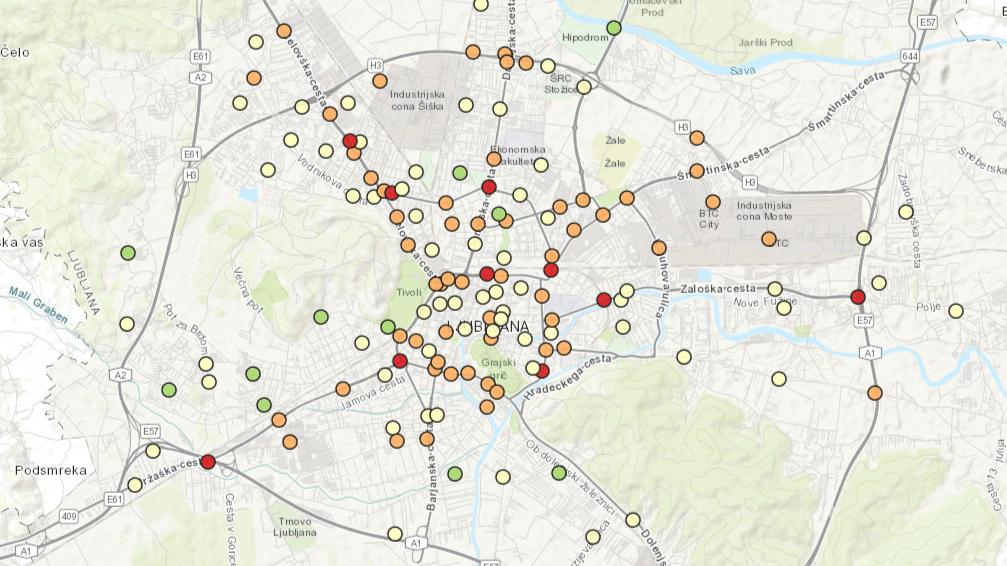

Guest Article: Tomaž Gorenc, Institute for Health and Environment
Air pollution is an important determinant of health, especially among vulnerable groups such as children, people with chronic diseases, elderly people or economically and socially disadvantaged people. Additionally, air pollution causes high social costs that we all pay for through premature deaths, lower productivity, sick leave, and other pressures on the health system. The main sources of air pollution are traffic, domestic fires and industry. Measuring NO2 levels of air pollution shows us the level of pollution due to traffic, especially diesel vehicles, which are the main source of NO2.
To better understand the links between levels of traffic and air pollution, therefore, the Slovenian Partnership for Environment and Health and Plan B network partners, Institute for Health and Environment (an EPHA partner), and Focus – Association for Sustainable Development implemented a science research project in Ljubljana, Slovenia, with the help of the general public.
In the first phase, we invited visitors and inhabitants of Ljubljana to identify and mark locations for pollution monitors on a collective online map, where, in their opinion, there is high air pollution due to traffic. Participants marked more than 200 locations on the map and filled out a short questionnaire (description of the pollution, description of the location, and contact details). After this phase, leading partners selected and partly repositioned suggested locations to achieve equal distribution. We dedicated additional focus on the areas where vulnerable groups are located (e. g. kindergartens, schools, nursing homes, and hospitals).
Trained volunteers, who set measuring passive tubes on the suggested locations, carried out the measurements of the NO₂ air pollution from the traffic at 186 locations, between 1-22 February 2021. During the measurement period, there were many lockdown restrictions, except for schools, which were open for children from the 1st to 3rd grade.
The results show that, despite lockdown measures and although many people were working from home, air pollution from NO₂ emissions from traffic was still present. Furthermore, at some locations the NO₂ concentration surpassed the air quality standards (over 40 g/m3). The majority of the locations had NO₂ levels between 30 and 40 g/m3, below the air quality standards limit. However, the weather conditions during the measurement period favoured lower NO₂ level results because there were no fog or temperature inversion, weak wind conditions (average wind 1,64 m/s), and 10 rainy days (out of 22 days measurement period; precipitation average 13,95 mm).
One of the key messages from the study is that air pollution from traffic in Ljubljana is problematic, despite COVID-19 lockdown measures. According to a recent CE Delft study, pollutants such as NO2, PM, and O3 cause an average yearly social cost of 1,502 EUR to each Ljubljana resident. Therefore, we believe that it is high time to implement comprehensive measures to improve air quality at the national and local levels and consider strategically, how and where investments will be spent.
The health and environmental professions are clear about the effects of air pollutants on the environment and human health, and the excessive costs which society pays, with the highest burden falling on vulnerable groups. The measures proposed in the newest CE Delft study, Air pollution and transport policies at city level Module 2: policy perspectives can contribute to improving air quality in cities and improve health and well-being for us all.
Disclaimer: the opinions – including possible policy recommendations – expressed in the article are those of the author and do not necessarily represent the views or opinions of EPHA. The mere appearance of the articles on the EPHA website does not mean an endorsement by EPHA.

